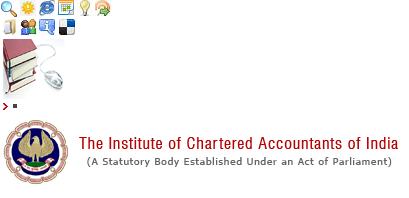RBI tightens gold import norms to squeeze CAD
The Reserve Bank of India (
RBI) on Monday streamlined its
gold import policy to ensure at least 20 per cent of the yellow metal sourced from abroad was made available to the country's gems & jewellery
exporters. Also, for domestic use, the nominated banks and importing agencies have been made responsible for making gold available only to the entities engaged in jewellery business and bullion dealers supplying gold to jewellers.
While the move is aimed at helping manage the country's precarious current account deficit (
CAD) situation and improve gold availability for exporters, domestic prices of the yellow metal might rise. For instance, insisting on meeting certain export levels before allowing fresh import of gold would limit the availability for domestic use, pushing prices up.
The revision has been done in consultation with the government and will be applicable to gold imports in any form /purity, including gold coins.
Besides banks and other agencies that import gold, the new regime would cover the bullion refineries that imported gold in Dore form (raw form), RBI said in statement.
RBI had imposed certain restrictions on import of gold in various forms earlier, too. Those were applicable on nominated banks, agencies, premier, star trading houses, units in special economic zones (SEZs) and export-oriented units, which were permitted to import gold for use in the domestic sector.
The central bank said any import of gold under any type of scheme would follow the 20-80 principle. The present instructions on import of gold on a consignment basis and the letter-of-credit restrictions stand withdrawn.
Under the new norms, an entity importing 100 kg of gold (which will have to be kept in bonded warehouse), for example, will have to release 20 kg to exporters (of gold, gold jewellery) against an undertaking to Customs authorities.
This entity would be permitted by the Customs to make fresh imports only to the extent of actual exports out of the 20 kg of gold held in the bonded warehouse, RBI added. For instance, it will be permitted to undertake fresh imports only after at least 15 kg of this 20 kg has been exported.
The latest move is expected to lead to higher domestic prices, say experts. Naveen Mathur, head of commodities at Angel Broking, said too many restrictions on imports with complex procedures would lead to supply squeeze in the domestic market, pushing prices.
RBI also said the government would issue separate instructions, if any, to the Customs authorities/Directorate General of Foreign Trade to operationalise and monitor these import restrictions.
The latest scheme follows exporters' meeting last month with Commerce Minister Anand Sharma. They had complained that banks were not importing gold for exporters and that jewellery exports were suffering due to low gold availability.
Jewellery exports fell in the first two months of the current financial year, despite a favourable currency and improving economic conditions in the US, one of India's major export markets.
"This will help the domestic and export industry. That's because there was no gold available. The move will increase supply," said Gitanjali Gems Managing Director Mehul Choksi.
Given the low availability of gold (due to increased import duty, and banks being allowed gold imports only on a consignment basis), monthly gold jewellery exports fell a staggering 73 per cent to $556.81 million in June, from $2,062.32 million in the same month a year earlier. In rupee terms, these exports plunged 72 per cent to Rs 3,251.80 crore, from Rs 11,555.17 crore in the month the previous year, according to data compiled by the Gems & Jewellery Export Promotion Council.
RBI said banks and agencies should also ensure compliance with instructions while effecting the foreign exchange transactions put through by/for their clients.
RBI also said: "Entities/units in SEZs and EoUs, premier and star trading houses are permitted to import gold exclusively for the purpose of exports only." This means the units that were allowed to supply certain part of gold in domestic market would now not be able to do so.
Source: Business Standard
